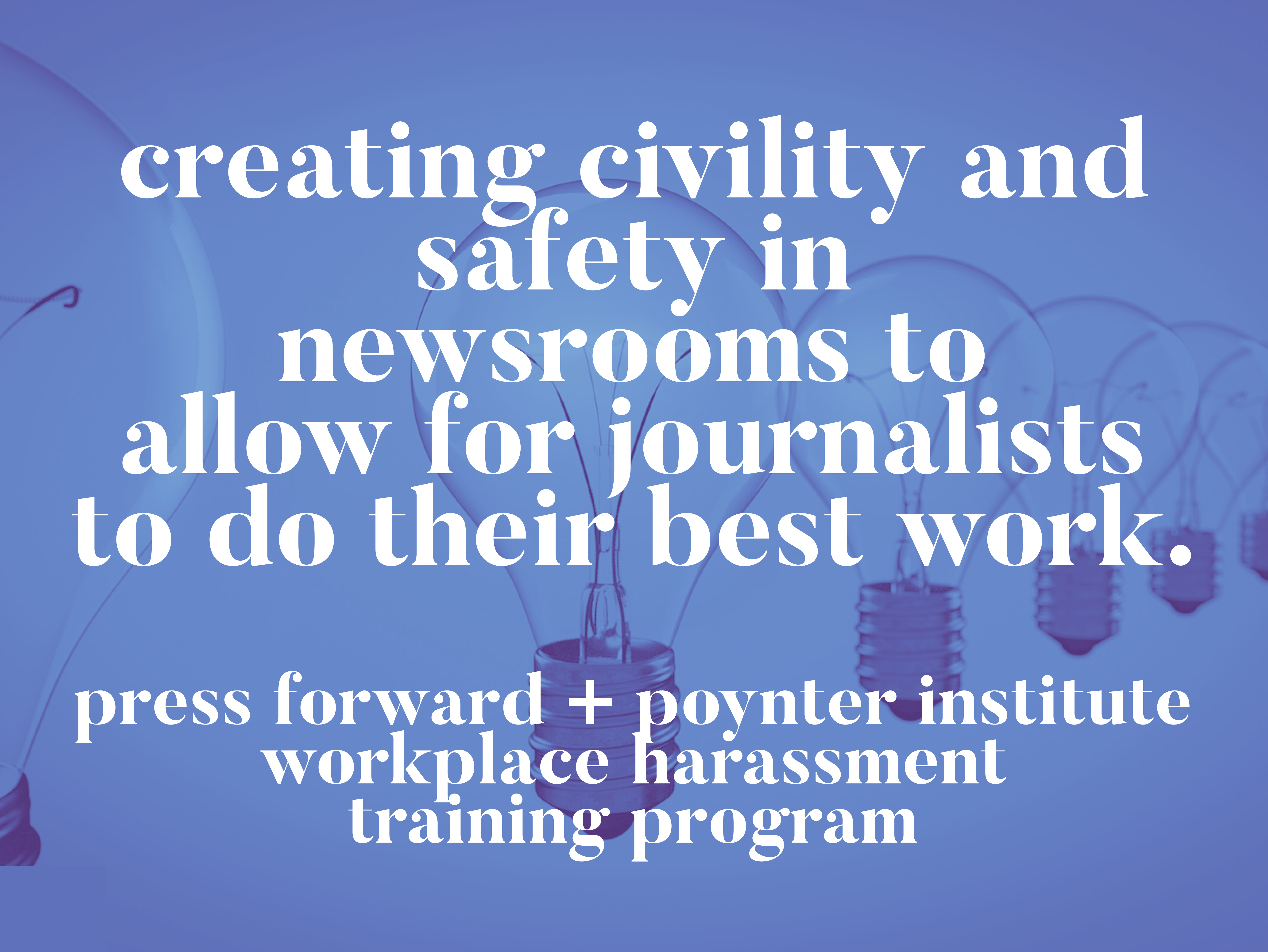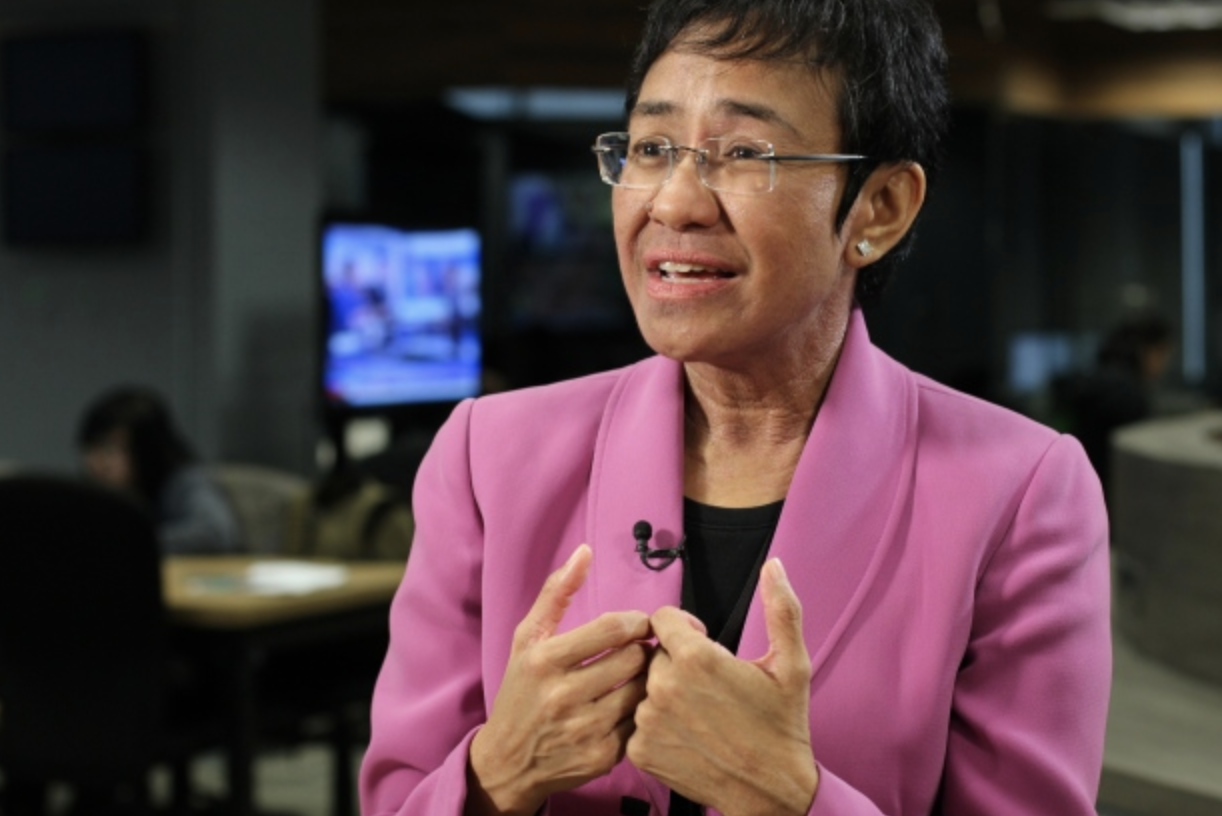By Gloria Riviera, Journalist and Senior Strategist for Training and Development, Center for Ethical Leadership in the Media
Two years ago today, two words changed our lives: #MeToo.
Journalism is not immune to the sexual harassment and abuses of power revealed by #MeToo. Today, October 15th, 2019, Center for Ethical Leadership in the Media in partnership with the Poynter Institute is releasing a new sexual harassment and abuse of power training program, “#UsToo: Building Trust in Newsrooms,” designed specifically for newsrooms to create a safe, civil, and secure workplace for all journalists.
The hashtag #MeToo, along with the courageous reporting on Harvey Weinstein, cascaded into a barrage of reports about abuses of power across workplaces in America. The journalism industry was very much included in this; powerful figures in newsrooms allegedly harassed and abused their colleagues – sometimes over decades. It changed the directions of careers and harmed newsrooms by depleting diversity and eroding public trust.
Journalists and all people deserve to work in environments with dignity, safety, and equality to do their best work. Period. No one should ever have to choose between dignity and employment. The fact that nearly two-thirds of female journalists will be harassed at some point in their careers (according to IWMF/ISNI) is not just sobering – it is unacceptable.
That is why I joined Center for Ethical Leadership in the Media as a co-founder during the initial passion powering the #MeToo movement. I was joined by nearly a dozen other courageous women who had told their stories. Together we have worked to advance workplace culture in our newsrooms through training, education, research, and dialogue.
I am particularly passionate about the need for radically redesigned sexual harassment and abuse of power training. We saw a gap that demanded evidence, data and research-based curriculum tailored to newsrooms.
In reflecting on my own experience I see that there was a clear power imbalance between myself and my boss during the time I was harassed. I was not alone; of the 11 women reporting directly to him while covering the 2004 Presidential campaign at least four of us experienced direct harassment. We confided in one another and in that confidence understood we were not alone; that was an empowering realization. We did not report the incidences of harassment to Human Resources because we feared for our jobs and, rightly or wrongly, did not believe action would be swiftly taken. Instead, we shared and commiserated in our grievances among ourselves and mutually agreed upon self-protective behavior.
We did not clearly know what our rights were. We did not know what legal protection from our company we deserved. We did not understand what actionable options we had. This is what we seek to change in sexual harassment and abuse training in newsrooms today.
Our Approach
Three priority goals became clear over the past two years. First and foremost, our new training had to be in person. Journalists are typically those who in some way, shape or form connect with personal stories. Bringing someone with deep experience in media into a newsroom to talk about issues that can be deeply uncomfortable and even shameful would revolutionize training.
Our country is in the middle of an on-going conversation about sexual harassment and abuses of power. To ask journalists to know what to do when his or her power is being compromised based on digital training alone simply won’t work. A digital platform can and should support training. But employees need a conversation to understand the root issues behind harmful behavior and proceed to grow from that understanding.
Second, our new training had to have real-life scenarios or examples that journalists would understand and respond to. Those scenarios had to resonate and spark conversation and debate over evaluating the people’s behavior in those scenarios: the perpetrator, the woman or man experiencing the harassment or abuse, the bystander, the manager, and any other relevant participants. We had to connect these issues to the values of journalism. When conversations of substance take place people grow and learn. At its core journalism is about being a voice for the voiceless and preventing abuses of power. When this core belief is compromised, newsrooms can breed harassment and abuse.
Third, our training must be multi-lateral and include all those from the newest intern to the most senior manager. And no matter what training one takes, it all has to be transparent. An employee must know what the most junior to the most senior employee is receiving in terms of training. We do not clearly see any of the focal points mentioned above offered in current training.
We are honored that The Wall Street Journal is the first to pilot our new program. We will continue to monitor and measure its effectiveness as we scale our training across newsrooms nationally.
We at Center for Ethical Leadership in the Media believe in a radical restructuring of sexual harassment and abuse of power training. This must happen to empower newsrooms and to enable all those in media to succeed. This is a cause I have been eager to directly work on and support, and I look forward to introducing newsrooms across the country to our new training.
Learn more about the training program here or through an article by Center for Ethical Leadership in the Media Chief Visionary Officer and Co-Founder, Carolyn McGourty Supple and SVP, Poynter Institute, Kelly McBride: #UsToo: Building Trust in Newsrooms from their newsletter The Cohort.
By Gloria Riviera, Journalist and Senior Strategist for Training and Development, Center for Ethical Leadership in the Media




